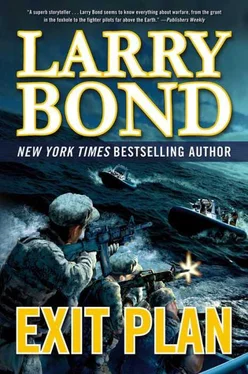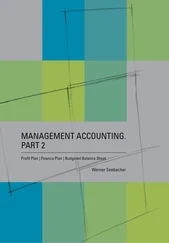7 April 2013
1500 Local Time/1300 Zulu
Daniel Hotel, Herzliya, Israel
They’d had an excellent lunch, Hardy had called his congressional office, and they’d had a brisk exchange of e-mails with Kirkpatrick confirming that the body Moradi described was indeed Lieutenant Vernon Higgs. They’d reviewed possible scenarios, and researched some finer points of the Israeli governmental structure.
And Ben-Rosen had finally called, at 1500, to explain that the doctor had been delayed en route. They were waiting for a new ETA and would have the schedule quickly after that. He asked for their forgiveness, and patience. The hotel had a pool, a spa, and offered guided tours of the historic parts of the city. Perhaps they could refresh themselves while they waited.
Hardy almost slammed the phone in the receiver when he hung up.
Joanna fumed. “They’re trying to distract us. They think we’re so self-indulgent we’ll happily wait while they prepare their attack.”
“I wonder how many times it’s worked,” Hardy mused. “So let’s relax. Want to take a walk on the beach?” He put his finger to his lips.
The outside temperature was seventy-two degrees Fahrenheit, with a light breeze. The Mediterranean could have been an oil painting. It was hard to be angry or impatient in a setting like that, and Patterson felt a little of her tension fade. She looped her arm through his and slowed to his pace.
Once they were away from the hotel, Hardy said, “I know our detail swept the room for bugs, but the Israelis are good. Let’s not take chances.”
“What if they call while we’re out here?” Patterson asked.
“They won’t call until we make them call,” he answered. “If they can stall us for a day, maybe just overnight, they can say ‘It’s too late now, we’re committed.’ They’re that close to being ready.”
“When, do you think?” she asked.
“As early as tonight. It doesn’t affect them as much as the Iranians. The Israelis can fly and fight in the dark as easily as the daytime. It reduces the chances of agents here spotting all the activity, the Iranian air defense crews will be tired, and it gives more time to rescue aircrews if any get shot down. I’d start provoking false alarms around midday, start messing with their minds…”
“But how do we force a meeting?” she asked.
Hardy smiled. “How did you get that meeting with the Russians on Peter the Great ?” In negotiations with the Russian Navy, she’d connived suspicious, almost hostile Russians into listening to her by publicly announcing that a meeting had been scheduled. It was risky, but it had worked.
“I came at them from a different direction, through the media. Can we do that here? The Israelis don’t care about what the press says. Their national survival is at stake. Can we apply pressure somewhere?”
Hardy almost laughed. “They don’t want what we’ve got right now.” He paused for a moment. “But they will want what we’ve got later, after the strike.”
“Political support,” Joanna said.
“Right. We can promise to abstain from any Security Council vote. We can threaten to limit arms sales in the future. The Israelis have to convince us that they are using the stuff we sold them for legitimate self-defense. If the Iranians don’t have the bomb, and the Israelis won’t listen, then they’re just bombing Natanz because it feels good.”
She didn’t look convinced. “We can’t say that on our own hook. Sure, you’re on the Senate Armed Services Committee, but you’re the junior member. We need to get approval from State.”
“Or from someone higher in the chain. We’ll ask. The Israelis know that acting against their ally’s wishes will have a political cost. Maybe they need to see what the price tag actually says.”
Patterson spoke softly. “And what about the data Jerry’s group has? When we get it, we’ll release a lot of the files. It would prove the Israelis were played — that there never was a bomb. It would embarrass both the Iranians and the Israelis.”
Hardy did laugh out loud, but lowered his voice to answer. “You mean make Mossad, the world’s greatest intelligence agency, look like monkeys? Would we do that?”
She just smiled, envisioning the scene.
“Let’s go write some e-mails,” Hardy suggested.
“But we should play nice,” she added. “We could say that we’re willing to listen to their analysis. We have the president’s ear. This is one last chance before the shooting starts to convince the U.S. and get our support.”
“And to think I married you for your looks,” he answered.
7 April 2013
2100 Local Time/1900 Zulu
Mossad Headquarters, Herzliya, Israel
Given their reception, a casual observer could not guess that the U.S. and Israel were allies. Mr. Ben-Rosen was waiting in the security lobby at Mossad headquarters. He didn’t smile, and didn’t offer his hand to either Hardy or Patterson. Once they’d signed in and gone through the scanner, he simply said, “Please come with me.” At least they didn’t have an armed escort.
The headquarters was busy, even hectic, but in addition to all the activity it looked to Patterson like security had been beefed up as well. One expected security guards in the lobby, all armed with Uzis of course, but there were additional checkpoints as they moved through the building. And when Ben-Rosen pulled out his identification so they could get on an elevator, she spotted the shoulder holster under his suit coat. So they did have an armed escort after all.
The elevator took them straight to the top floor. The previously voluble assistant didn’t utter a word until they stepped out. “They’re waiting for us in the conference room.” He opened a door on the left.
Joanna went in first, followed by her husband. She expected the long table, the Israeli flags, and paintings on the wall. What she didn’t expect was the Israeli Minister of Defense, Michael Lavon, seated at the far end of the room. He’d been in the news enough to be instantly recognizable.
A second man stood next to a coffee urn at the far end. He was about the same age as Lavon. Ben-Rosen introduced them. “Senator Hardy, Dr. Patterson, this is Dr. Yaniv Revach, our Director, and General Lavon, our Minister of Defense.”
So instead of meeting with one deputy director, they were speaking directly with the two most powerful, and probably the busiest men, in Israel.
Neither was smiling, and while they shook hands with the Americans, there was no warmth in their grip. There wasn’t any small talk either. While Hardy and Patterson took their seats, Ben-Rosen served coffee and then left the room. The two ministers took chairs on the opposite side of the table from the American envoys. They were the only people in the room, which was big enough to hold thirty. No secretaries, no briefers, no assistants.
Lavon spoke first. In his early fifties, his trim build and short blond hair hinted at his past. He still flew fighters when time allowed.
“We are hoping this meeting will be short. That’s one reason for limiting its size. We also hope we can all speak frankly, without unfriendly, or even friendly ears overhearing the discussion. We will not take notes, and you will have to accept our guarantee that we are not being recorded.” La-von smiled a little, but it appeared forced.
As defense minister, Lavon outranked the head of Mossad. He took the lead. “We hope you will convey to President Myles our desire to resolve our differences and work together to face a common threat. You can also tell him we don’t like being threatened by our friends.”
As they had discussed, Joanna spoke for both of them. “Right now, we’re the kind of friend who takes away your car keys when you’ve had too much to drink, or tries to warn you about the girl you’re asking out. Our information proves the Iranians aren’t close to having a nuclear weapon. Not only will your air force bomb a worthless target, you will give the Iranians exactly what they want.”
Читать дальше












